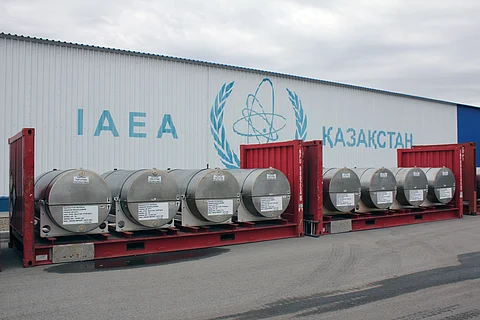

As the ceasefire between Israel and Iran appears to be holding after a brutal 12-day conflict, political, military, and diplomatic fallout is beginning to emerge from U.S. President Donald Trump’s decision to not only support Israel’s attack on Iran, but also authorize American strikes on three of Iran’s nuclear facilities on Saturday.
One of the most pressing concerns is the whereabouts of Iran’s enriched uranium stockpile. According to international sources, approximately 409 kilograms (901 pounds) of previously enriched uranium is currently unaccounted for.
Rafael Grossi, Director-General of the International Atomic Energy Agency (IAEA), stated on June 18 that while inspectors had verified the uranium just days before Israel’s June 13 strikes, the agency no longer knows its location.
Following the U.S. strikes on Saturday, The New York Times reported—citing American officials—that both Grossi and U.S. Vice President J.D. Vance were unaware of where the uranium had been moved. On Monday, Fox News, a network generally aligned with the Trump administration, reported that “no one knows” the uranium’s current location.
On Tuesday, Grossi again confirmed the agency had no updated information on the uranium’s whereabouts, even while welcoming news of the ceasefire.
Prior to Saturday’s U.S. strikes, satellite imagery suggested that Iran had evacuated its Fordow enrichment facility, likely relocating the uranium to a more secure, undisclosed location. However, renewed cooperation with the IAEA now appears increasingly uncertain.
Before the Israeli strikes, Iranian authorities released leaked documents alleging that the IAEA had passed sensitive information about Iran’s nuclear program to Israel—damaging the agency’s credibility in Tehran.
On Monday, the Iranian Parliament’s National Security Committee approved the general framework of a bill to suspend cooperation with the IAEA. Parliamentary Speaker Mohammad Baqer Qalibaf announced that lawmakers are preparing to pass legislation that would halt collaboration with the agency until Iran receives “objective guarantees” of the IAEA’s neutrality and professional conduct.
On June 12—just hours before Israel launched its airstrikes—the IAEA’s Board of Governors passed a resolution declaring that Iran was in compliance with the Nuclear Non-Proliferation Treaty (NPT). The resolution was based on a report drafted last year that examined activities between 2003 and 2018 and made no claims about Iran’s current nuclear activities.
Some analysts argue that the resolution served as a diplomatic pretext for the subsequent Israeli military operation, pointing to the timing of the vote and the immediate commencement of airstrikes.